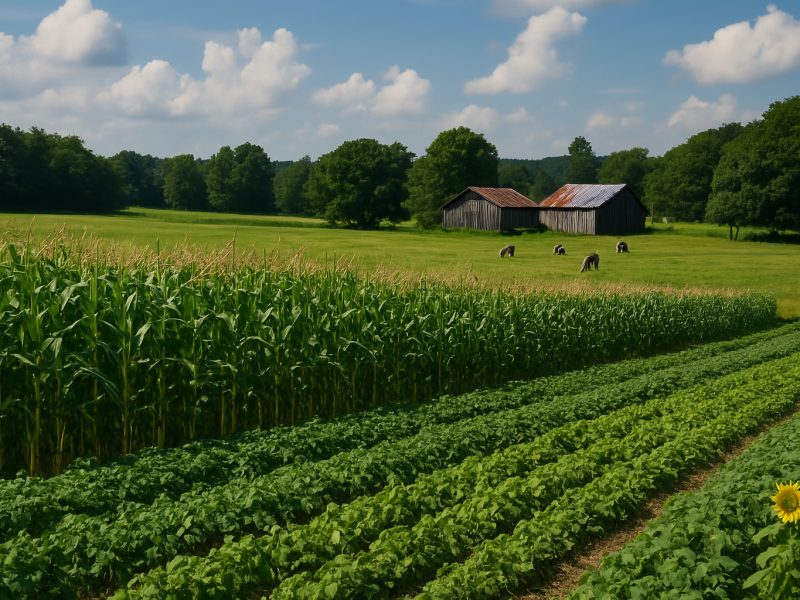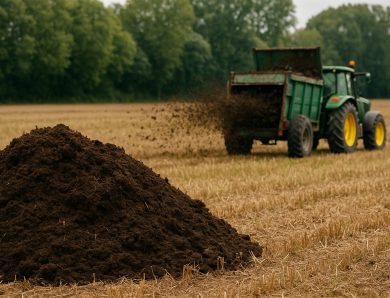
What Happens When a Farm Goes Organic?
When a farm transitions to organic practices, it changes nearly every part of its operation. The soil becomes healthier. Wildlife returns. Chemical use drops to zero. Crops adapt to natural rhythms, not synthetic boosts. Livestock is raised on natural feed without growth hormones. In short: the farm aligns itself with nature’s systems rather than bending them.
Immediate Changes After Transition
1. Soil Management
Organic farms stop using synthetic fertilizers. Instead, they focus on compost, green manure, and crop rotation. This rebuilds soil fertility naturally, increasing microbial life and water retention.
2. Pest and Weed Control
Chemical herbicides and pesticides are replaced with biological methods. Farmers introduce beneficial insects, companion planting, and manual weeding strategies.
3. Animal Welfare Practices
Livestock is raised under stricter welfare standards. Animals get access to pasture, eat organic feed, and are treated with herbal remedies rather than antibiotics.
4. Certification Requirements
Farmers must go through a certification process, which often includes a multi-year transition period. During this time, they follow organic practices but cannot market their goods as certified organic until completion.
Long-Term Effects on the Farm
– Soil Health Improves Over Time
Years of organic practices result in nutrient-dense soil that supports stronger, healthier crops.
– Biodiversity Flourishes
Without synthetic chemicals, native plants, pollinators, and wildlife return, creating a balanced ecosystem.
– Yield Fluctuations
In the early years, crop yields may dip as the farm adjusts. Over time, yields often stabilize and can rival or exceed conventional outputs depending on crop type and management.
– Higher Labor Demands
Organic farming often requires more manual labor for tasks like weeding, monitoring pests, and managing soil health.
– Financial Impact
Organic products often command higher prices. However, the increased labor and certification costs can offset some of these gains initially.
Key Challenges Faced During the Transition
- Weed Pressure: Without chemical herbicides, weeds can overrun fields if not carefully managed.
- Pest Control: Learning to use natural predators and crop diversity takes time and experimentation.
- Certification Costs: The process can be expensive and time-consuming, especially for small operations.
- Market Access: Finding reliable buyers willing to pay a premium for organic goods may require building new relationships.
Benefits That Outweigh the Challenges
– Healthier Food Production
Organic produce often contains fewer pesticide residues and may have higher nutrient levels.
– Environmental Gains
Reduced chemical runoff means cleaner waterways and healthier surrounding lands.
– Stronger Soil for Future Generations
Organic methods build a farm’s resilience against droughts, floods, and soil degradation.
– Brand Trust and Loyalty
Consumers increasingly value food transparency. Farms that commit to organic practices often enjoy stronger loyalty from customers.
Summary: A Commitment to Regeneration
When a farm goes organic, it isn’t just swapping out inputs; it’s committing to a philosophy of regeneration. Every seed sown, every animal raised, and every action taken moves the farm closer to a system that sustains itself naturally. The transition brings challenges, but it also plants the seeds for a resilient and vibrant agricultural future.




No Comment